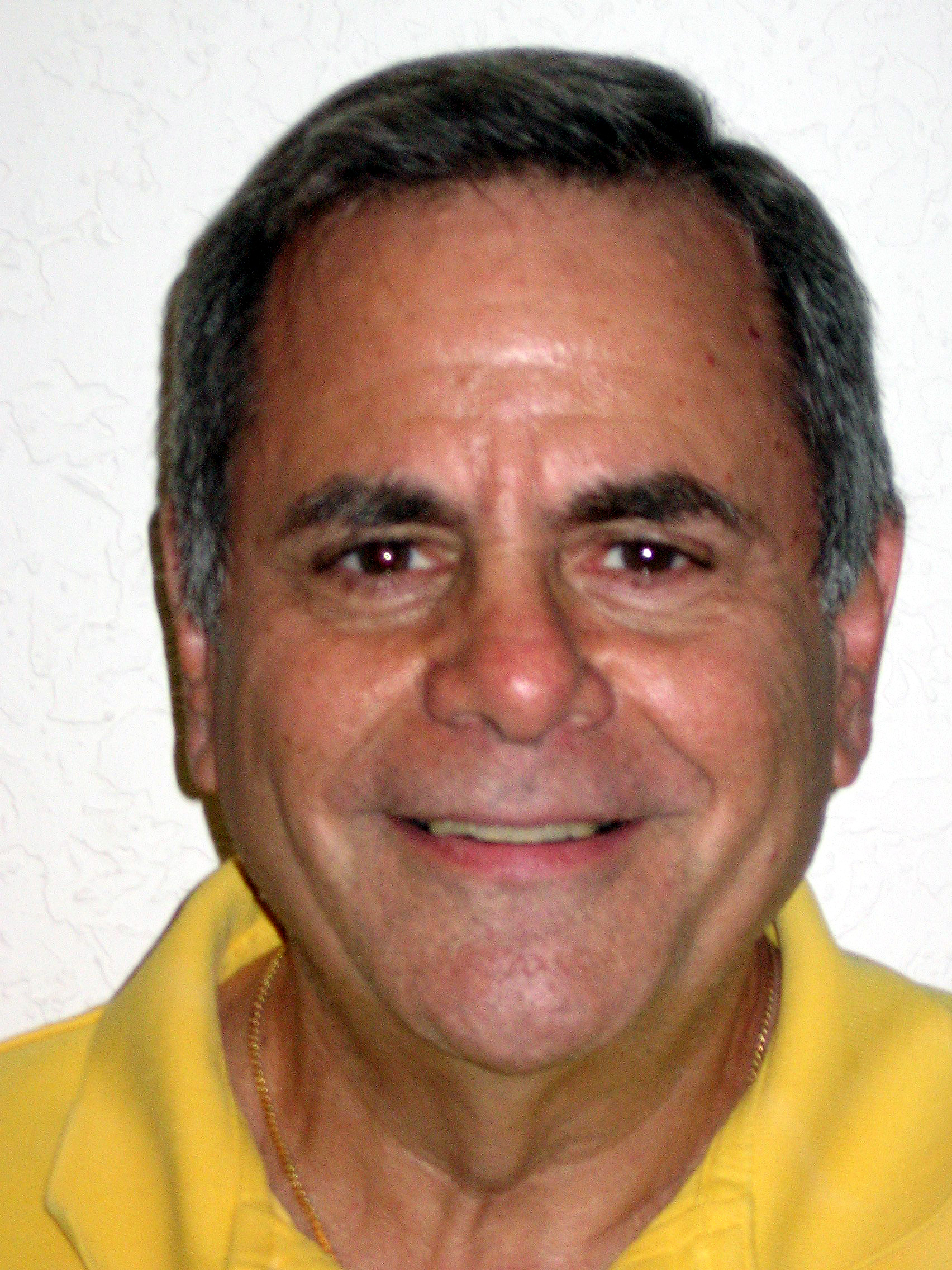|
International and
National. |
Israel always intended to give back
Golan—University of Haifa researcher Ben-Artzi
HAIFA (Press Release)—"The course of settling the Golan Heights was not
spontaneous, as was previously thought. The settlement movement in the Golan was
led by the political establishment with a very specific motive: to counter
demands to withdraw from land conquered in June 1967 without a peace treaty
between Syria and Israel. The motive was not territorial expansion," revealed
Dr. Yigal Kipnes of the Land of Israel Studies Department at the University of
Haifa, who has undertaken research into the settlement of the Golan Heights
between 1967 and 1992.
Dr. Kipnes'
research, under the direction of Prof. Yossi Ben-Artzi, studied the course of
settlement in the Golan Heights over the initial twenty-five year period
following the Six-Day War when the territory was captured from Syria. He found
that decision makers had mixed motivations for moving forward with the policy of
settling the area. While it was clear that the settlements would eventually
become a political bargaining chip, as there was no way to speculate on a
timetable for peace negotiations with Syria, a long-term settlement plan was
drawn up for the entire area.
According
to Dr. Kipnes, these conflicting principles influenced the settlement process
from its initial phases, resulting in unrealistic targets in terms of population
size, settlement location and timetable implementation. The initial settlement
plan called for 45,000 to 55,000 residents to settle in the Golan Heights, with
the majority (30,000 residents) concentrated in a city located in the central
Golan. This master plan was never implemented. For economic reasons, new
residents of the area preferred to settle in the southern Golan, close to the
settlements in the Jordan Valley, or in the northern Golan, close to the
established Upper Galilee communities. Dr. Kipnes further points out that the
regional business enterprises and educational centers set up in the central
Golan failed, and today, the majority of the Golan residents work and study
outside of the Golan region.
The
research found that for 25 years, the Israeli government hid their agenda from
both the Israeli public and the international community, and explained how the
Golan Heights was "transformed" from being an integrated, inseparable part of
the State of Israel to a central point in the negotiations for peace between
1992 and 2000. While the prevailing public assumption has been that the Golan
Heights is an integral part of Israel, the underlying agenda of the Israeli
government has been exactly the opposite, Dr. Kipnes found.
The preceding story was provided by the University of Haifa
Holocaust denial denounced at historic interfaith
gathering of Jews, Muslims, Hindus in Indonesia
BALI,
Indonesia (Press Release)—In an historic first, Jewish leaders, including a
Holocaust survivor, a rabbi from Israel and a survivor of a suicide bombing in
Jerusalem addressed an interfaith conference in the world's most populous Muslim
country. Tolerance Between Religions: A Blessing for All Creation was
co-sponsored by the Wahid Institute, the Simon Wiesenthal Center's Museum of
Tolerance, and LibForAll Foundation.
An audience of 100 community activists, young Imams, Muslim and Hindu students
heard from victims of suicide terror in Jakarta, Bali and Jerusalem as well as
Holocaust survivor Sol Teichman. Teichman tearfully recalled his family's
deportation to Auschwitz, but urged survivors of terrorism, including a young
Muslim man disfigured in the bombing of Jakarta's Marriott hotel four years ago
to “never to give up hope,” and instead “become the voice of those who can no
longer be heard.” The emotion-filled session, which also heard from Tzippy
Cohen, an Australian-American woman injured in the horrific Cafe Hillel suicide
bombing, was carried live to the Middle East and Europe on the Arabic language
Al Hurra satellite network.
At the opening plenary, conference Chairman Abdurrahman Wahid, former President
of Indonesia and a leader of some 40 million Muslims, blasted Iranian President
Ahmadinejad’s campaign of denying the Holocaust: “President Ahmedinejad is a
friend but when he lies about the Holocaust - he is wrong and I say so
publicly.” In a related development, Wahid co-authored an editorial in today’s
Wall Street Journal with former Israeli Chief Rabbi and Holocaust survivor,
Rabbi Israel Lau, entitled “The Evils of Holocaust Denial” which stated, in
part,
“By lying about the events of the past, the deniers are paving the way toward
the crimes of the future...Let us be clear: The real purpose of Holocaust denial
is to degrade and dehumanize the Jewish people. By denying or trivializing the
murder of six million Jews by the Nazis and their allies, the deniers are
seeking to advance their notion that the victims of the 20th Century's greatest
crime are, in fact, that century's greatest victimizers. By denying or
trivializing the Holocaust, the deniers are seeking to rob Jews of their history
and their memory -- and what is a people without history and memory? Indeed,
the deniers are perpetrating what is, in effect, a second genocide. Extinguished
as they were from the ranks of the living, Hitler's Jewish victims are now, in
effect, to be extinguished from the ranks of the dead.” Wahid and Lau wrote.
Ironically, Rabbi Lau was refused a visa for the gathering because he carries an
Israeli diplomatic passport. Indonesia does not recognize the Jewish State.
Rabbi Daniel Landes, of Jerusalem's Pardes Institute was permitted to attend and
together with President Wahid and Hindu leader, Sri Sri Ravi Shankar were the
first to sign a “call to action” condemning the linkage between religion and
violence and to condemn the justification by religious leaders of violence.
“Some crucial milestones were reached today. First that Jews were invited to the
table as equals in the world's largest Muslim nation,” said Rabbi Abraham
Cooper, associate dean of the Simon Wiesenthal Center. “Secondly we saw Muslim
leaders explicitly and openly condemn suicide terror and Holocaust denial while
publicly embracing victims of terror and a Holocaust survivor. We hope our
collective call to action will awaken more voices across the Muslim world to
join President Wahid's open condemnation of Ahmadinejad’s Holocaust denial and
all those who invoke G-d's name spawn wanton violence,” the Wiesenthal Center
official noted. Cooper, who moderated the day-long gathering, added that “the
symbolism of convening this diverse group in Bali, the site of recent terrorism,
we hope will also help the wonderful people of this region bring back their
tourism to pre-terrorism levels.”
The preceding story
was provided by the Simon Wiesenthal Center in Los Angeles.
Germany completes
compensation of WWII slave laborers
BERLIN (Press Release)—The German fund set up to compensate people forced to
work as slave laborers by the Nazis has completed the distribution of monies to
victims of the regime. More than US$ 5.8 billion was paid to a total of 1.6
million beneficiaries. The fund, set up in 2001 and endowed with € 5 billion
(US$ 6.7 in current values) is made up of contributions from Germany’s federal
government and from German industry. The remainder of the fund will be spent on
special projects, including humanitarian and medical programs for Nazi victims
and education programs for young people. “The money has been paid and everything
has run its course without a problem,” Otto Graf Lambsdorff, who negotiated the
establishment of the fund on behalf of the German government, told German radio.
Though the fund compensated victims from Kiev to Tel Aviv to Los Angeles, the
largest recipient groups were non-Jews in Poland and Ukraine, people exploited
in large numbers in Germany's industries during World War II. Unlike Jews, who
often were killed immediately in death camps, most non-Jewish forced laborers
survived their ordeals. Individual payments from the fund were made depending on
the degree of labor and were up to € 7,500 per individual.
The foregoing article was provided by the World Jewish Congress.
____________________________________

Letter from
Jerusalem
_________________By Ira Sharkansky____________
Settling civil wars in Iraq,
Palestine, difficult tasks
JERUSALEM—According to the New York Times: “The top American military
commander for the Middle East has warned Iraq's prime minister in a closed-door
conversation that the Iraqi government needs to make tangible political progress
by next month to counter the growing tide of opposition to the war in Congress.”
That is
better than a message to Ehud Olmert that Israel needs to make tangible
political progress in order to counter the growing frustration about the Middle
East in Congress.
Perhaps
the administration has noticed that there is a Palestinian civil war, and that
not much is likely to happen by way of Israeli-Palestinian peace until that is
over.
The
administration should also notice that there is a civil war on its doorstep in
Iraq that may complicate whatever efforts the Iraqi prime minister might want to
make toward tangible political progress. He may even be part of the civil war,
or cautious about any political moves until he sees just what faction of which
community is likely to be on top. Asking a Shiite prime minister in Baghdad to
make nice with Sunni activists is not the same as asking Protestants to get on
with Catholics in Indianapolis.
The
accepted wisdom is that there is conflict "on the verge of civil war" in both
Iraq and in Palestine. "Civil war" is a naughty word, suggesting that the great
power has erred in its effort to control things.
In the
last couple of days fighters of Hamas and Fatah have targeted each other's
headquarters buildings and leading politicians in Gaza. Daily tolls are in the
magnitude of 15-20 deaths. That is minor league by comparison with Iraq, but
there are enough ugly details. One ranking captive was tossed from the roof of a
15-story building. It is more than a street corner dust-up between rival gangs.
The
Palestinian conflict is only one factor likely to delay anything dramatic in our
neighborhood. Another is fighting between Lebanese and Palestinians. Curiously,
international human rights organizations are not as bothered about civilian
casualties there as they are whenever Israel seeks to defend itself.
Yet
another element in the likelihood of remaining with the status quo is the
weakness of the Israeli government. "Lame duck" is heard in the midst of Hebrew
commentary.
In this
parliamentary system there does not have to be a national election until 2010,
but no one I hear expects the government to last that long. Olmert has been
weakened in public opinion and in his own party by criticism of his performance
in last year's Lebanese war, and several charges of corruption. Yet there is no
obvious replacement who has a stronger base of power, and none of the parties in
his coalition are intent about trying their luck in an early election. Comments
about leaving the coalition by each candidate in today's Labor Party primary
sound more like campaign rhetoric than serious planning. The Labor Party is at a
historic low in its electoral strength, with enough internal dissent to postpone
any leap to greatness.
The other
lame duck spends his time in Washington, or going to other world centers like
Albania and Bulgaria in search of applause. No one hopeful of American aid is
likely to spurn outright a message from Washington, but none are likely to go
very far in compliance without knowing what kind of cooperation will prevail
between the White House and Congress; and that seems unlikely before 2009.
Change can
come quickly. Both Iran and Syria are likely sources of destabilization. But
until there is something dramatic on breaking news, we can expect more of the
same.
_____________
Be it
ever so dusty, there's no place like Israel
MEVASSERET ZION, Israel—Coming back to Israel after a trip abroad almost always
produces mixed feelings. Suddenly one realises how hot, dry and dusty the
country still is, despite the valiant efforts of the authorities and the various
settlement organizations, whether pre- or post-State, to plant trees and shrubs,
sow crops and generally ‘make the desert bloom.’
Of course,
there is no point comparing Israel with the countries of temperate Europe, where
all is green and fertile. And the contrast with north America is even starker.
The vastness, wealth and abundance of that part of the world is so striking as
to put it in a category of its own.
But each
time I visit the USA I cannot help having a mental image of the Jews of Germany
who were refused refuge by any western country, despite the immense territories
available to the USA, Canada and Australia, to name but a few. That helped to
produce what became known as the Final Solution, wherein most of the Jews of
Europe were systematically murdered.
And so,
whenever I come back to this poor, arid land my heart swells. After all, it does
have a strange beauty of its own. Yes, it’s imperfect. Yes, many of us are not
happy with the government. Come to think ot it, about fifty percent of Americans
aren’t too pleased with theirs. And probably the same will apply to England’s
population at the next election. That’s what happens in democracies. The point
is that one always has the right to protest, demonstrate and/or vote at the next
election.
The idea
here is, of course, that Israel is ‘a poor thing but our own.’ Here we can feel
at home. Here we can defend ourselves and give our brethren refuge. And that is
something we cannot always be sure of anywhere else.
The foregoing article was reprinted from the
AJR
Journal (Association of Jewish Refugees) in England.

|
 Your specialist in Your specialist in
cruises and tours
Upcoming 2007 San Diego sailings:
Now-December 29: Carnival:
Elation: multiple 4-and 5-day sailings, round trip to Mexico.
Sept 23-Dec 30: Princess Cruises: Dawn Princess: 7-day round trip to
Mexico
Sept. 28: Celebrity Cruises: Summit: 14-day Hawaii
Sept. 29: Holland America: Oosterdam, 7-day Mexico. |
ADL, AJC Praise Columbia
University for its
statement on British academic boycott against Israel
NEW YORK (Press Release)—The Anti-Defamation League (ADL) and the American
Jewish Committee today praised Columbia University President Lee C. Bollinger
for his statement strongly denouncing the British University and College Union's
call for a boycott against Israeli academic institutions as "antithetical to the
fundamental values of the academy."
ADL
welcomed President Bollinger's statement as a "principled stand" against the
boycott attempt and praised his words as a model for other academic leaders and
institutions of higher learning in the United States and around the world to
follow.
"It is our
hope that other university leaders around the United States and across the globe
will join you in your statement and embrace these Israeli scholars and
universities that the University and College Union has unfairly sought to
penalize," Abraham H. Foxman, ADL National Director, wrote in a letter to
President Bollinger.
"We
believe it is vital for other leaders in the academic community to take a stand
against the British boycott attempt and to send the message that this action
constitutes a morally reprehensible, wrongheaded and fundamentally biased
assault on Israel's academic institutions and scholars," Foxman said.
In a
statement made available on Columbia University's Web site, President Bollinger
said the recent UCU vote to pursue a boycott policy against Israeli institutions
and academics, "… threatens every university committed to fostering scholarly
and cultural exchanges that lead to enlightenment, empathy, and a much-needed
international marketplace of ideas." President Bollinger said that Columbia
University would "… gladly stand together with our many colleagues in British,
American and Israeli universities against such intellectually shoddy and
politically biased attempts to hijack the central mission of higher education."
The American Jewish Committee said it "applauds today’s powerful statement by
Columbia University President Lee Bollinger, saying that if British academics
are going to boycott Israeli institutions, they 'should add Columbia to its
boycott list, for we do not intend to draw distinctions between our mission and
that of the universities you are seeking to punish.'
"Bollinger’s statement not only rejects the boycott, but also reflects a deep
understanding that this is a watershed moment for academic freedom which
requires firm action," the AJC said.
The
foregoing article was based on informaiton provided by the Anti-Defamation
League and the American Jewish Committee
Bill
prohibiting sale of jet parts to Iran wins
approval in the U.S. House of Representatives
WASHINGTON, DC—The House on Monday passed legislation by voice vote
that prohibits the Pentagon from selling surplus F-14 fighter jet
parts to Iran.
The Stop Arming Iran Act asserts that the sale of such parts "could
make it more difficult to confront the nuclear weapons capability of
Iran and would strengthen the ground war capability of Iran."
The legislation also notes the urgency of preventing arms sales to
Tehran in light of its support for terrorist groups such as Hamas,
Hizballah, Islamic Jihad and the Popular Front for the Liberation of
Palestine. The bill was sponsored by Reps. Gabrielle Giffords
(Democrat, Arizona) and Steve Pearce (Republican, New Mexico).
The preceding article was
provided by the American Israel Public Affairs Committee (AIPAC)
 Jews
in the News Jews
in the News
---------------------------------------------------------------------------------------------------------------
Like you, we're pleased when members of our community are
praiseworthy, and are disappointed when they are blameworthy.
Whether
it's good news or bad news, we'll try to keep track of what's being said in
general media about our fellow Jews.
Our news spotters are Dan Brin in Los Angeles, Donald H. Harrison in San Diego,
and you. Wherever you are, if you see a story of interest, please send a
summary and link to us at sdheritage@cox.net.
To
see a source story click on the link within the respective paragraph.
____________________________________________________________________________________________
*The DVD of The Two of Us by Claude
Berri is being released. The story concerns the bonding of a Jewish boy
masquerading as a Catholic during World War II, and his bonding with an
older, grandfatherly man, who is an anti-Semite unaware of the boy's true
identity. A brief summary is included in a roundup
story by Susan King in today's Los Angeles Times.
*Homeland Security Secretary Michael Chertoff says New York City
needs to be better prepared for a hurricane. The combined wire service
story is in today's Los Angeles Times.
*U.S. Senator Dianne Feinstein
(Democrat, California) says the Senate is likely to approve legislation
this year mandating higher miles-per-gallon ratios in new cars. The
story by Richard Simon is in today's Los Angeles Times.
*San Diego Mayor Jerry Sanders has announced his backing for a law suit
to force developer Aaron Feldman to limit the height of the Sunroad
Enterprises building at Montgomery Field to 160 feet. The
story by Jeff McDonald is one of the briefs included in a roundup in
today's San Diego Union-Tribune.
*Creative
differences may drive architect Frank Gehry from the second and third
phases of the massive mixed-use, high-rise project on Grand Avenue of Los
Angeles. Architectural critic Christopher Hawthorne has the
story in today's Los Angeles Times.
*U.S. Senators Charles Schumer (Democrat, New York) and Arlen
Specter (Republican, Pennsylvania) led the unsuccessful effort to bring
a vote of no confidence to the floor of the U.S. Senate, but they were
stymied because they could not round up 60 votes to prevent a filibuster.
However, they did obtain more than a majority of the Senate. The story
by Richard B. Schmitt is in today's Los Angeles Times.
*Stephen Schwarzman, chief executive officer of the Blackstone
Group, pulled down a fairly decent wage in 2006: $400 million, which is more
than $1 million per day. The Associated Press
story by Joe Bel Bruno is in today's San Diego Union-Tribune.
*A forensic scientist in the trial of record producer Phil Spector
said the fact that there was no blood spatter in front of Lana
Clarkson's body may mean someone was standing between her and the wall when
she was shot. The
story by Matt Krasnowski of the Copley News Service is in today's San
Diego Union-Tribune. An
overview of the case is provided by Associated Press writer Lynn Elber
elsewhere in the San Diego Union-Tribune.
*High school students in Sderot, an Israeli city adjacent
to the Gaza Strip, were moved inland to take their examinations as sporadic
rocket fire from Gaza continued. Meanwhile within Gaza and the West
Bank Hamas and Fatah factions continued their warfare in which 17 persons
were killed An Associated Press
story by Sarah el Deeb is in today's San Diego Union-Tribune. A
companion
story by the Associated Press tells of a rocket grenade being fired at
the home of Palestinian Prime Minister and Hamas leader Ismael Haniyeh
without causing him injury.
*A Universal Studio executive questioned Matthew Weiner by email
whether he was an African-American, prompting him to respond that
although the issue should not bear on his employment, he was a Jew from New
York. The matter came up in a federal suit against Universal contending that
Frank Davis was fired as an assistant director because he was
African-American. The
story by Lorenza Muñoz is in today's Los Angeles Times.
*Los Angeles City Councilman Jack Weiss contends the group trying
to recall him are wealthy homeowners who wanted to control a multi-million
dollar mitigation fund for a Century City development project, instead of
sharing that control with the City of Los Angeles. The
story by Steve Hymon is in today's Los Angeles Times.
|
  News Sleuths: News Sleuths:
Watching the media gathering and reporting the news of Jewish interest
|
Date: June 11, 2007
Place: United Nations, New York City
The spokeswoman:
Michèle Montas,
office
of Secretary General Ban Ki-Moon
Source: United
Nations transcript
Subject: Israel and Iran
Question:
There have been reports of major Israeli and American military exercises and
(inaudible) similar threats from Israel that they would attack Iran. We haven’t
heard any comments from the Secretary-General regarding these exercises or
threats. Even today when he was asked about it, he talked about Gaza. Is he
deliberately ignoring what’s happening there, or did he not get the question
right?
Spokesperson: Well, first, we don’t comment on threats.
Comment:
But the Secretary-General has commented and made a statement regarding alleged
threats by the Iranian President regarding Israel. But whenever Israel is
threatening Iran, and they do that regularly, we don’t have any reaction from
him.
Spokesperson:
What is your question?
Question:
My question is, do we have any reaction from the Secretary-General regarding
this threat to international peace and security, especially in a very sensitive
area like the Gulf, where oil supplies could be threatened if a war breaks out?
We have heard from Shaul Mofaz himself recently talking about 100 Tomahawks
launched against Iran. Is the Secretary-General not concerned about this?
Spokesperson:
He is certainly concerned. He is following the situation.
Question: Can we expect a statement on it?
Spokesperson:
I don’t know at this point. I will let you know.
Date: June
12, 2007
Place: White House Press Briefing Center
The spokesman:
Tony Snow
Source: White House transcript
Subject: Iran-U.S.
Q...Senator
Lieberman said that the U.S. should be prepared to take, "aggressive military
action against Iran." And my question: Does the President disagree with the idea
of a preemptive military strike on Iran, which continues its attempt to produce
nuclear bombs, or does he agree with President Truman's preemptive A-bombing of
Hiroshima and Nagasaki?
MR. SNOW: I'm not sure that
the President is going to go back and hand out grades to Harry Truman, other
than to note that he was somebody who had to make tough decisions in difficult
times.
What the President has
always said is, when it comes to Iran, we want to bring international pressure
to bear, so that we do not get to the point where we have to worry about a
nuclear Iran, especially one that may have the capability to place nuclear
warheads on a theater or intercontinental ballistic missile, and therefore,
jeopardize the stability of the region in, in fact, not only the Middle East,
but also Europe and Asia.
So at this juncture, that
is really where our efforts lie. When it comes to any other things, those are
sheer speculation. What the President will do is what he considers absolutely
necessary to keep this country and its people safe.
Q Thanks.
Date: June
12, 2007
Place: U.S. State Department
The spokesman: Sean McCormack
Source: State Department transcript
Subject: Syria, Israel, Palestinian Authority
QUESTION: Sorry, just one more. Syria says
that it's ready to negotiate peace with Israel but it won't accept any of the
conditions that Israel apparently has laid down. I wondered whether you had any
response to that, especially in the light of Prime Minister Olmert's visit next
week when the Syrian issue is apparently going to be discussed.
MR. MCCORMACK: Right. Well, we have said
before, I'll repeat for you, that we're not going to make decisions on behalf of
Israel about its foreign policy. But if you take a look at recent Syrian
behavior in the region -- not even recent, going back years -- I don't know if
you'll find any indication of a state and a regime that has an interest in
coming over to the side of negotiation as opposed to the use of violent
extremism in order to achieve political ends. So if there's any indication of
that, certainly it hasn't been discernible to the human eye. And again, Israel
will have to make its own decisions, but you know, I'm not sure that there's any
indication from this regime that it is actually interested in a serious dialogue
about settling differences via peaceful means.
QUESTION: Has the Bush Administration
privately or otherwise proposed something to Syria analogous to the Qadhafi
deal?
MR. MCCORMACK: To the Qadhafi deal?
QUESTION: Yeah, whereby in exchange for
renouncing weapons or other activities the United States doesn't like, we can
move forward on some kind of better footing --
MR. MCCORMACK: Not to my knowledge. But you
know, again, this isn't just activities that we don't like. These are activities
that are harmful to the interests of everybody in the region. If you just ask
the Lebanese, many Lebanese, what they think about Syrian activities in Lebanon,
ask the Palestinian people what they think about -- think about the Syrian
Government supporting violent extremist Palestinian rejectionist groups, I think
you're seeing some of the effects of that now in the Gaza Strip of some of this
terrible fighting that is going on there.
Let's be clear about it. These -- this most recent round of violence started up
by the "military wing of Hamas" was coming just at the point as you started to
see some of the Qassam rocket attacks go down, that you saw the Egyptian
Government in Gaza trying to bring the various political factions within the
Palestinian areas to some sort of agreement so that you could end the violence.
And once again it has flared up in an ugly way, and that is because you are
seeing those who are irreconcilable to any political process or participation in
a political process, nevermind negotiating peace with Israel, acting to subvert
any hope of reducing the violence emanating out of the Gaza Strip.
Yeah.
QUESTION: Can I -- just one general
question. The meeting between Prime Minister Olmert and Abbas is being postponed
and, as far as I know, there isn't another date yet. Do you think that -- I
mean, how do you see what's happening at the moment in terms of the role that
you've been trying to play to push the peace process forward? Do you think that
you're making headway? Do you think that because of the chaos that you just
can't find any opportunity in that chaos? I mean, where are you?
MR. MCCORMACK: Well, we -- well, first of
all, the fact of their not meeting -- they are going to have to decide -- make
these decisions about exactly the when and the where. We leave it -- we leave it
to them. I'm not going to tell you we don't encourage -- we're not encouraging
them to get together. We have. Secretary Rice has said that she will continue to
do so, and we do.
We're confident they are going to meet together,
if for no other reason than both see it in their interest to meet together to
try to work on problem solving. There's a mutual -- there is a mutual interest
there. And certainly we think it is in the interest of both parties to try to
start a dialogue on the whole spectrum of issues in -- ranging from the most
minute to some of the most important that remain between the Israelis and the
Palestinians to try to eventually come to a political accommodation that results
in an Israel and a Palestine.
The violence in Gaza is certainly nothing that
anybody wants to see, but ultimately it is the Palestinians that need to
reconcile the political differences that are at the root of this violence. You
know, there are, again, quite clearly two pathways that the Palestinian people
can take, and there's the pathway of Palestine via the negotiating table, which
is the only way that you're going to realize a Palestine, or they can continue
down this pathway in which a violent few can drag an entire population into a
miserable, violent, awful situation in which kids can't take their final exams
at high school, they can't take their university exams. And that's a situation
nobody wants to see.
But ultimately it's going to be the Palestinians
that need to sort out their politics and make a decision about which pathway
they want to go down. You know, Israel, of course, has things that it needs to
do as well. So there is a certain -- there are a certain number of things that
we can do. There are a certain number of things that we can encourage people to
do, that we can push people to do, that we can intervene to do. But there are
some irreducible things that, for example, the Israelis and the Palestinians
need to do for themselves.
QUESTION: But the Secretary at one point
had said she'd hoped to go every month and that hasn't happened. Are you losing
steam here?
MR. MCCORMACK: Well, no, certainly not. If
you measure -- if you measure it in terms of the activity that is ongoing that
you don't always see with the Secretary talking to her foreign counterparts;
David Welch, Elliott Abrams, others talking to their counterparts, trying to
move the process forward. It's -- look, the Middle East is unpredictable and you
set out -- you set out targets for action with the intent of meeting them.
Sometimes -- sometimes circumstance will dictate that it is better to give
people a little time and space in order to have more effective meetings, to
allow them to take more effective action.
But this is not something that the Secretary -- it is not an issue that the
Secretary is in any way losing focus on. It is not in any way an issue that she
is devoting any less energy to. And she remains committed to trying to move
forward an Israeli-Palestinian track, moving forward an Israeli-Arab track. The
Quartet has already committed itself to meeting towards the end of this month
first with Israelis and Palestinians then with Arab representatives. So again,
that's another -- one more benchmark.
I know this is a -- sometimes an issue where it's
difficult and -- difficult to measure progress in any other way than having
meetings, but we hope to get to the point where you don't just measure progress
in what meetings you're having, what phone calls you're having, but actually
seeing results on the ground. And that's what the Secretary is going to continue
driving toward.
_________________________________________________
The Jewish Grapevine
 -------------------------------------------------------------------------------------------------------------------------------------
-------------------------------------------------------------------------------------------------------------------------------------
BASEBALL JEWS—From the pages of today's San Diego Union-Tribune:
Kevin Youkilis of the Boston Red Sox is currently listed as the
fifth best hitter in the American League with a .336 average...
Shawn Green, who had been sidelined with a broken bone in his foot,
was activated by the New York Mets before last night's game with the Los Angeles
Dodgers.
 CELL
PHONES AND GORILLAS—Kolenu, the weekly newsletter of Soille San Diego
Hebrew Day School, reports as follows: "1st Grader Bruce Fleury is
working with the San Diego Zoo Cell Phone Recycling Program as part of hist 1st
Grade Animal Report and Project. What happens to old out-of-date phones?
It's estimated that more than 100 million cell phones are thrown away, or
stuffed in a drawer, each year. Did you know that cell phones here in the United
States and elsewhere have a connection to the well-being of gorillas and other
animals in central Africa? Here's the 4-1-1: cell phones contin a rare ore
called coltan (short for columbite-tantalite). This metal is found in central
Africa, and increased mining operation to get the coltan means habitat loss and
increased hunting pressure on gorillas and other wildlife. Please dig up your
old cell phones and bring them in. Look for the cell phone recycling bin
in the 1st Grade Class Room." CELL
PHONES AND GORILLAS—Kolenu, the weekly newsletter of Soille San Diego
Hebrew Day School, reports as follows: "1st Grader Bruce Fleury is
working with the San Diego Zoo Cell Phone Recycling Program as part of hist 1st
Grade Animal Report and Project. What happens to old out-of-date phones?
It's estimated that more than 100 million cell phones are thrown away, or
stuffed in a drawer, each year. Did you know that cell phones here in the United
States and elsewhere have a connection to the well-being of gorillas and other
animals in central Africa? Here's the 4-1-1: cell phones contin a rare ore
called coltan (short for columbite-tantalite). This metal is found in central
Africa, and increased mining operation to get the coltan means habitat loss and
increased hunting pressure on gorillas and other wildlife. Please dig up your
old cell phones and bring them in. Look for the cell phone recycling bin
in the 1st Grade Class Room."
ISRAEL DEBATE—In the continuing Israel vs. the Arab debates that recur in
the
letters column of The San Diego Union-Tribune, Israel was
attacked on the USS Liberty issue by Steve Kowit of Potrero
and defended by Mark Bernstein of Riverside.
IN MEMORY—Shirley Gross, 92, mother of Rochelle Samuels, died
Thursday, May 31, and was buried at El Camino Memorial Park. A short
obituary is in today's San Diego Union-Tribune.... Ira Ravel,
73,
died Sunday,
June 10, leaving his wife Jackie, son Jeffrey and Bruce,
and sister Marilyn Reinman and two grandchildren. His brief
obituary is in today's San Diego Union-Tribune.
(Return to top)
________________________________________________________________________
 Not Necessarily
kosher Not Necessarily
kosher
Bruce Lowitt
_____________________________________________________________________
'First' pitcher at Padres-Rays game heads
for Israel league
ST.
PETERSBURG, Fla. - Ben Pincus probably got as close tonight as he'll ever get to pitching in the major leagues. He threw out the ceremonial first pitch before the San Diego Padres-Tampa Bay Devil Rays game.
For the time being, anyway, the 23-year-old from St. Petersburg will have to be satisfied pitching for the Bet Shemesh Blue Sox, who drafted him to play in the inaugural season of the Israel Baseball League this summer.
Maybe some day he'll write about the experience. He just graduated from the University of North Florida in Jacksonville with a degree in journalism.
"My baseball career isn't over, obviously," he said, adding with a smile, "I don't see myself ending up pitching in Tropicana Field [the Devil Rays' home] anytime soon. Still, what I'll be doing is an opportunity these [major leaguers] never had.
"It's unbelievable. I can't express how excited I am to have an opportunity to play in the Israel League, especially in its first year."
Pincus said his brother sent him an e-mail a few months ago about the IBL. He contacted the league, never heard anything for a month, then got an e-mail asking him to attend a tryout in - where else? - Miami. He did, and was sufficiently impressive that he was offered a contract on the spot.
Bet Shemesh is about 20 minutes outside Jerusalem.
"The way [the six-team league] is set up," Pincus explained, "there was only one baseball stadium in Israel. But with the backing they've had they've just
finished building two more. So two teams will share each one.
Pincus has been to Israel, on an Operation Birthright trip about two years ago,
and says he isn't worried about going back for an extended stay.
"A lot of people have asked me if I'm nervous about the situation over there. I'm really not," he said. "I have family over there. It's like, if you stay where you're supposed to and don't go where you're not, I think you're just as safe as anywhere in America."
Pincus spent last year rehabilitating from shoulder surgery. Before that he pitched for Tennessee Tech as a freshman and sophomore, then for North Florida.
"Like every kid that plays baseball, I had dreams of playing [in the majors] and coming out of high school I got a scholarship to a Division I college, so the dream was still kind of there," Pincus said.
"But after my sophomore year I had knee surgery and during my junior year I had shoulder surgery. I wouldn't say I gave up after that but I kind of put it deep in the back of my mind."
Pincus' college pitching record was, to put it kindly, undistinguished.
"My last season I was in only five games and didn't get a decision," he said. "My sophomore year I was our # 2 starter, but we weren't that good a team. I was tied for the team lead in wins with two. But at North Florida we were the No. 1 team in the country for a time and went to the Division II
College World Series national championship game.
"Although my stats in college weren't anything to brag about," Pincus said, "I wouldn't change any of the experiences I had."
______________


|
Arts,
Entertainment & Dining |
|
If you have a serious interest in Jewish
culture
and you would enjoy writing reviews, attending premieres,
reporting on special events, then
San
Diego Jewish World
may have just the volunteer position for you.
We're looking for columnists and writers on a wide variety of subjects
who can help us interpret the Jewish experience. Please contact
Don Harrison, editor, at (619) 265-0808 or via this
email
link if you are interested in
joining our creative team
|
 People
of the Books People
of the Books |
100-year-old's
story is a true autobiography, not just a memoir
Laura Simon's tenacity and phenomenal
memory account for 'amazing' read
I AM STILL HERE by Laura Simon; Montezuma Publishing; 428 pages; no price
listed.
Reviewed by Norman Manson
SAN
DIEGO—Amazing is a very mild word in describing this book. Just the idea that a
100-year-old woman is able to tell her life story, reduce it to readable prose
and get it published is a feat worthy of great acclaim.
But the
book's value goes well beyond the mere fact of its publication. For one thing,
Laura Simon's memory is absolutely phenomenal, from her childhood in the grubby
precincts of Chicago to the account of her recent days as a senior citizen in
San Diego. In addition, her descriptive powers and the glimpses into her outlook
on life - her philosophy if you will - make this work a true autobiography, more
than a mere memoir.
What stands out in this voluminous collection of vignettes is Simon's tenacity,
her perseverance in the face of obstacles large and small. Finishing the book
and having it published is undoubtedly the greatest testament to this facet of
her character, but the book is studded with examples of her refusal to give up
the fight, even in the face of great odds.
Simon was
born in 1905 into what would now be termed a dysfunctional family of Jewish
immigrants. Her parents divorced (rather unusual for that time) and verbal
battles involving them, her stepmother and other relatives seem to have been the
norm. Still, she reminisces about good times as well as bad, even if overall she
does not seem to have had a happy childhood.
She did have a happy marriage, however, as shown by the fact that she continued
to write love letters to her Mannie long after he had passed away, reliving
their half-century of life together, with a few sad reminiscences mingled with
mostly happy ones. She writes of being courted by several other men, even in her
seventies and eighties, but none of them measured up to her beloved husband.
The book's
final chapters, dealing with Simon's struggles with the infirmities of advancing
age, are the section which most illustrates her determination, especially shown
in her encounters with doctors and other medical practitioners. In fact, she
calls determination the secret of her life -"I must get there," she writes in
the book's concluding chapter, marking her100th birthday.
For one
thing, she absolutely refuses to even think of entering a nursing home, even as
she faces enormous difficulties in getting help with housework and other menial
chores.
Through it all, the reader is struck by her generally upbeat outlook, her
interest in her surroundings and continuing relationships with family, friends
and even casual acquaintances.
Although
legally blind and hard of hearing, she is still captivated by the sights and
sounds of such places as La Jolla Shores. And her final paragraph pretty well
sums up her philosophy of life:
"All the while we are still aging, like good wine or champagne. Life begins to
taste better. As we look upwards, the bad things begin to fade away, the ashes,
smoke and grief. All you remember then is the good, like the values of
childhood, the values of past generations that have been given to us, that we
hand over to generations that follow. Now, as I stand here at this great height,
and look out to the world around me, all I see is beauty."
The book is not always easy reading - there are non-sequiturs, and occasionally
one cannot be sure who is being quoted in a particular passage - but overall it
is an outstanding example of an exploration in depth of a thoroughly fascinating
life.
(Return to
top)
___________________________________________________________

Arts
in Review
by
Carol Davis
___________________________________________________________
Nostalgic Sassy Sarah
Vaughan provides enjoyable evening
SAN DIEGO—Random acts of kindness, doing the right thing, tzedakah are
not limited to one race, one religion or one people. They happen everywhere, all
the time and mostly when we least expect it.
Recently I was invited to see a show produced by the Ira Aldridge Repertory
Players. Founding father Calvin Mason shared a story with the audience about a
time when he had helped a homeless woman find some dignity when he had invited
her to see one of his shows as his guest. Fifteen years later, she found him
again and presented him with a check to help his theatre company because through
his act of kindness, she picked herself up, went back to her home town, finished
her education and made a success of herself.
I
tell this story because the Ira Aldridge Repertory Players is not a rich company
as far as money is concerned; they are as far as heart is, though. They were
established in 1984 as a labor of love by Manson. Their mission is “to produce
and present artistic performances that bring people together, provoke thought,
inspire hope, and create understanding. The IARP is a not for profit arts
organization that provides a unique experience in the tradition in the Black
African American art form and culture in three key areas: Theatre, Education
and Public programs.
 Recently,
the IARP presented a stylish tribute to Sarah Vaughan, Sassy Sara Vaughan, The
Divine One, in a West Coast Premiere, written and directed by Calvin Mason,
with musical direction by Vick Kemp and starring Ayanna Hobson as the Divine
One. Accompanying Hobson on piano is Kemp, Jeanette Greene on acoustic Bass, Al
Torre on drums and Earl Vault (great) on tenor sax. Recently,
the IARP presented a stylish tribute to Sarah Vaughan, Sassy Sara Vaughan, The
Divine One, in a West Coast Premiere, written and directed by Calvin Mason,
with musical direction by Vick Kemp and starring Ayanna Hobson as the Divine
One. Accompanying Hobson on piano is Kemp, Jeanette Greene on acoustic Bass, Al
Torre on drums and Earl Vault (great) on tenor sax.
Vaughan, who was born in 1924 in Newark, N.J. and was rated one of greatest jazz
vocalists along with Ella Fitzgerald (Mason did a show on her as well) and
Billie Holiday. Her voice was operatic in range and she admitted she had
considered opera as a career. Her mother gave her piano lessons even though the
Ayanna Hobson portrays Sara Vaughan
family
struggled to get by. Her professional career took off when she won an amateur
contest in Harlem’s Apollo Theatre in 1942 singing “Body and Soul”
Some of the greats she sang with were the Earl Hines’ Orchestra, Billy Eckstine,
Dizzy Gillespie and Charlie Parker. I recall seeing her in my home town in
concert in the late ‘40’ early ‘50’s and she was Sassy then and remained so
throughout her career. She continued to be a top live attraction right up to the
time of her death in 1990.
The dinner and show last a little over two hours in a little out of the way
restaurant, Caesar’s Café at 801 ‘C’ Street through July 1. The dinner shows
are scheduled Fridays and Saturdays at 7pm and Sunday at 2pm.
Throughout the program Hobson takes on the persona of Vaughan telling her story,
her successes, her struggles and then breaking out in song. The audience is
taken back to 1959 Chicago at Mr. Kelly’s Nightclub where a live recording
session with Sarah Vaughan is in progress.
No less than 22 songs were sung for us that night, some I recall vividly…
“Misty,” “They Can’t Take That Away From Me,” “All Of Me,” “Lullaby of Birdland,”
“Body and Soul,” “Tenderly,” “Send in the Clowns,” “I Can’t Give You Anything
But Love,” “Just in Time,” and “Exactly Like You.” Others I know I’ve heard,
but they never stuck with me. And while I don’t have total recall of
Vaughan’s
sound, I know there were times I could close my eyes and hear her. Other times I
found Hobson wanting.
Overall the evening is entertaining, sometimes it dragged on, but listening to a
voice of one of the greats from the past is always a treat.
Over the years, the IARP has helped over 20 other community groups to raise
money for their organizations, in particular Las Munecas, an African American
women’s charity that raises funds for the Elementary Institute of Sciences.
Giving is always good for the soul.
See you at the theatre.
EDITOR’S NOTE: Throughout Sara Vaughan's career, she drew on the
works of Jewish composers and lyricists ranging from the Gershwin brothers to
Stephen Sondheim, as well as upon their non-Jewish counterparts. For example,
here are the credits for some of the songs mentioned in this review. "They Can’t
Take That Away From Me"-- George and Ira Gershwin; "All of Me" – Gerald Marks
and Seymour Simons; “Body and Soul”—
Edward Heyman,
Robert Sour, Frank Eyton and
Johnny Green; “Tenderly”—Walter Lloyd
Gross, Jack Lawrence; “Send in the Clowns” – Stephen Sondheim; “Just in Time”—
Jule Styne, Adolph Green, Betty Comden; “I Can’t Give You Anything But
Love”—Jimmy McHugh/ Dorothy Fields; “Exactly like you”/ Jimmy McHugh; "Lullaby
of Birdland – George Shearing; and "Misty"—Erroll Garner.
For
more information about Las Munecas:
www.eisca.org About IARP:
www.iarpplayers.org
|
 Prime
Minister Olmert told Dutch Foreign Minister Verhagen that
the West must act quickly in order to change the situation
in the Gaza Strip and added that serious consideration
Prime
Minister Olmert told Dutch Foreign Minister Verhagen that
the West must act quickly in order to change the situation
in the Gaza Strip and added that serious consideration


 Your specialist in
Your specialist in
 Jews
in the News
Jews
in the News
 News Sleuths:
News Sleuths:  -------------------------------------------------------------------------------------------------------------------------------------
------------------------------------------------------------------------------------------------------------------------------------- CELL
PHONES AND GORILLAS—Kolenu, the weekly newsletter of Soille San Diego
Hebrew Day School, reports as follows: "1st Grader Bruce Fleury is
working with the San Diego Zoo Cell Phone Recycling Program as part of hist 1st
Grade Animal Report and Project. What happens to old out-of-date phones?
It's estimated that more than 100 million cell phones are thrown away, or
stuffed in a drawer, each year. Did you know that cell phones here in the United
States and elsewhere have a connection to the well-being of gorillas and other
animals in central Africa? Here's the 4-1-1: cell phones contin a rare ore
called coltan (short for columbite-tantalite). This metal is found in central
Africa, and increased mining operation to get the coltan means habitat loss and
increased hunting pressure on gorillas and other wildlife. Please dig up your
old cell phones and bring them in. Look for the cell phone recycling bin
in the 1st Grade Class Room."
CELL
PHONES AND GORILLAS—Kolenu, the weekly newsletter of Soille San Diego
Hebrew Day School, reports as follows: "1st Grader Bruce Fleury is
working with the San Diego Zoo Cell Phone Recycling Program as part of hist 1st
Grade Animal Report and Project. What happens to old out-of-date phones?
It's estimated that more than 100 million cell phones are thrown away, or
stuffed in a drawer, each year. Did you know that cell phones here in the United
States and elsewhere have a connection to the well-being of gorillas and other
animals in central Africa? Here's the 4-1-1: cell phones contin a rare ore
called coltan (short for columbite-tantalite). This metal is found in central
Africa, and increased mining operation to get the coltan means habitat loss and
increased hunting pressure on gorillas and other wildlife. Please dig up your
old cell phones and bring them in. Look for the cell phone recycling bin
in the 1st Grade Class Room."

 People
of the Books
People
of the Books

 Recently,
the IARP presented a stylish tribute to Sarah Vaughan, Sassy Sara Vaughan, The
Divine One, in a West Coast Premiere, written and directed by Calvin Mason,
with musical direction by Vick Kemp and starring Ayanna Hobson as the Divine
One. Accompanying Hobson on piano is Kemp, Jeanette Greene on acoustic Bass, Al
Torre on drums and Earl Vault (great) on tenor sax.
Recently,
the IARP presented a stylish tribute to Sarah Vaughan, Sassy Sara Vaughan, The
Divine One, in a West Coast Premiere, written and directed by Calvin Mason,
with musical direction by Vick Kemp and starring Ayanna Hobson as the Divine
One. Accompanying Hobson on piano is Kemp, Jeanette Greene on acoustic Bass, Al
Torre on drums and Earl Vault (great) on tenor sax.